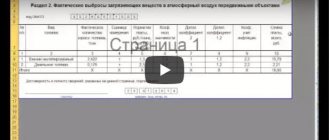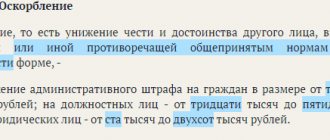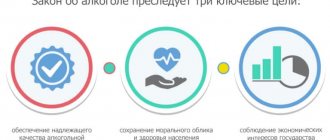Disposal of solid household waste: what has changed in the legislation
Law No. 89-FZ was supposed to change the existing system of collection, disposal and storage of household waste. The new procedure for handling MSW is carried out through a single regional operator, and not through a management company.
Payment for waste removal is now considered a mandatory public service. Payment in most regions from 2021 depends on the number of residents. Before the reform, calculations were carried out based on the area of the premises. The location for collecting MSW in 2021 is determined individually for each home. Regional authorities must calculate the consumption rate and the number of containers located in the local area. The new tariffs include costs for the disposal of solid waste, the construction of processing plants and new landfills, and measures to protect the environment and the ozone layer.
According to the new regulations, municipal waste must be sorted and disposed of separately by category. At the moment, separate waste collection is not carried out in all regions. The transition to such a collection turned out to be technically difficult.
Dispute with a regional MSW management operator regarding the method of commercial accounting of MSW
Many of us are faced with the so-called “garbage reform”, which has been implemented for more than two years, but so far no one has understood the essence of this reform, since nothing has changed except that another intermediary has appeared in the form of a regional operator and garbage fees have increased several times.
In the Komi Republic, the transition to a new form of relations in the field of solid waste management occurred even earlier than in the country as a whole, namely from November 1, 2021. At that time, no one really understood how everything would look and work.
Somewhere at the end of 2021, our company received a letter from a regional operator with an offer to conclude an agreement. In response, we sent an application for concluding an agreement, which indicated the address and name of the facility, and the diagram of the container site. As a method of commercial accounting of the volume of MSW, they were asked to indicate - based on the number and volume of containers, referring to paragraph. third sub. “a” clause 5 and clause 6 of the Rules for commercial accounting of the volume and (or) mass of solid municipal waste, approved. Decree of the Government of the Russian Federation dated June 3, 2016 No. 505. We also indicated the number of containers in the application: one container with a volume of 0.75 cubic meters, the frequency of removal is 3 times a week.
On the specified conditions, an agreement was concluded for the provision of services for the management of MSW from February 1, 2021.
We worked within the framework of this agreement for a year, and no serious problems arose. It is clear that the garbage collection schedule was not always followed, but we turned a blind eye to this.
The problems began in February 2021. We receive an invoice from the regional operator, in which the amount of the fee has increased six times, and the volume of MSW, instead of the agreed upon 9 cubic meters per month, was indicated in the amount of more than 55 cubic meters. Naturally, we did not pay this amount, but sent a claim to the regional operator demanding a recalculation in accordance with the terms of the contract.
To which we received an answer that the amount of the fee has increased because... the calculation was made on the basis of the standard. At the same time, the regional operator indicates that calculations based on the actual volume are possible only if separate collection of MSW is organized in accordance with clause 8 of Rules No. 505. In support of his argument, the regional operator referred to judicial practice. The regional operator also refers to SanPin 2.1.7.3.550-19, according to which MSW must be removed daily when the outside temperature is above +5. In addition, the regional operator indicates that in accordance with clause 2.4 of the same SanPin, in order to determine the number of waste bins installed at a container site, business entities must proceed from the population size using the waste bins and the standards for the accumulation of solid waste.
In addition, with the response, the regional operator sent to us an additional agreement to the contract, according to which the calculation of fees for services for handling MSW is carried out according to the standard. We, in turn, sent a written refusal to sign the additional agreement, indicating that all the terms of the agreement were determined by the parties, any change in the terms of the agreement is possible only by agreement of the parties or in court if there are grounds for this. We are not interested in changing the terms of the concluded agreement, because the volume of waste generated as a result of the enterprise’s activities has not increased, and the terms of the additional agreement infringe on our rights.
Since the position of the regional operator was unchanged, and they continued to issue inflated bills, we decided to seek protection of our rights from the Komi OFAS, since we believed that the actions of the regional operator showed signs of violation of competition law, expressed in the imposition of unfavorable terms of the contract. The Komi OFAS, having considered our complaint, refused to initiate a case of violation of antimonopoly legislation against the regional operator. At the same time, the antimonopoly authority fully repeats the arguments of the regional operator that, by virtue of clause 8 of Rules No. 505, the method of commercial accounting of the volume of MSW based on the number and volume of containers should be used only in the case of separate accumulation of MSW. In connection with this, the antimonopoly authority indicates that the terms of the concluded agreement are not subject to application and payment for services must be made according to the standard. To justify its decision, the antimonopoly authority refers not to the law, but to judicial practice! Also, the Komi OFAS considered that the calculations based on the agreement were not subject to application because the container site was not included in the register of container sites. Of course, the decision of the Komi OFAS greatly surprised us. It feels like the regional operator wrote the decision for them.
In this regard, we had to go to court with a claim to oblige the regional operator to recalculate the accrued fees under the contract based on the terms of the contract, and at the same time appeal the decision of the Komi OFAS. The court suspended the proceedings in the case of appealing the refusal of the antimonopoly authority until the consideration of the case on the obligation to make a recalculation.
At the time of consideration of our case, vicious judicial practice began to form in arbitration courts related to the incorrect interpretation of the provisions of Rules No. 505, in particular clauses 5, 6 and 8 of these Rules.
Clause 6 of the Rules for commercial accounting of the volume and (or) mass of solid municipal waste, approved by Decree of the Government of the Russian Federation of June 3, 2021 N 505, determines that in order to make settlements with the owners of solid municipal waste, commercial accounting of solid municipal waste is carried out in accordance with subparagraph “a” of paragraph 5 of these Rules, which provides that commercial accounting of municipal solid waste is carried out by calculation based on:
standards for the accumulation of municipal solid waste, expressed in quantitative terms of volume;
the number and volume of containers for the accumulation of solid municipal waste installed in places where solid municipal waste is accumulated.
Paragraph 8 of Rules No. 505 establishes that “in case of separate accumulation of MSW for the purpose of making settlements under contracts in the field of MSW management, commercial accounting of MSW is carried out in accordance with paragraph 3 sub. “a” clause 5 of Rules No. 505”, i.e. based on the number and volume of containers.
In my opinion, everything is extremely simple and clear. You don’t need to be a lawyer to read paragraphs 5, 6 and 8 of the Rules and understand their essence: owners of MSW have the right to commercially account for the volume of MSW in one of two calculation methods: according to the standard or based on the number and volume of containers. The method that the parties determine in the contract for the provision of services for the management of solid waste is used. If the owner of MSW conducts separate collection of MSW, then only one method of commercial accounting can be used - based on the number and volume of containers.
But the courts somehow misunderstood these provisions. In particular, courts often indicate that the method of commercial accounting - based on the volume and number of containers - is applied only in the case of separate accumulation of MSW, referring to clause 8 of Rules No. 505. By the calculation method of commercial accounting, for some reason, the courts understand only calculation according to the standard, which contradicts subsection. “a” clause 5 of Rules No. 505, which specifies two current accounts: according to the standard or according to the actual volume. Based on this interpretation of the provisions of Rules No. 505, the courts come to the conclusion that the terms of the agreement on payments based on the actual volume are not subject to application and calculations must be made according to the standard.
Our defense was based on the following points:
- All essential terms of the agreement, including the terms on the method of commercial accounting and the volume of MSW, were agreed upon by the parties. The agreement was executed by the parties without objection throughout the year.
In accordance with Article 154 of the Civil Code of the Russian Federation, in order to conclude an agreement, it is necessary to express the agreed will of the two parties (a bilateral transaction).
By virtue of Article 160 of the Civil Code of the Russian Federation, a transaction must be concluded in writing by drawing up a document expressing its contents and signed by the person or persons entering into the transaction, or their duly authorized persons.
Article 161 of the Civil Code of the Russian Federation establishes that transactions of legal entities between themselves and with citizens must be made in simple written form, with the exception of transactions requiring notarization.
Considering that an agreement is the agreed will of two parties, in this case, in order to apply the payment method according to the standard, its approval is required by both the owner of the MSW and the regional operator.
Unilateral change by the regional operator of the terms of the concluded agreement in this case violates the provisions of Art. 450 of the Civil Code of the Russian Federation.
2. The enterprise carries out separate collection of MSW (the court was presented with photos of a container site with containers for plastic and paper and for MSW, acts of delivery and acceptance of recyclable materials for processing with a specialized company, documents confirming the approval by the local government of a container site with separate collection of MSW) .
By virtue of clause 8 of the Rules for commercial accounting of MSW volume, separate accumulation of MSW is an unconditional basis for calculating fees based on the volume and number of containers.
In response to the defendant’s argument that we do not have the right to separate accumulation of MSW, because the transport scheme in the Komi Republic does not provide for transport flows for separately collected MSW; we referred to the Decision of the Arbitration Court of the Komi Republic dated October 17, 2020 in case No. A29-7750/2020, according to which “The owner of MSW, who actually organized separate accumulation, should not become a hostage to defects territorial scheme, flaws in legislation, possible defects in the implemented procurement procedure, the absence of a waste sorting plant in a constituent entity of the Russian Federation, the unsuitability of landfills for separate collection of MSW, logistical and organizational difficulties of the regional operator (operators), since the owner of MSW, due to objective reasons, cannot influence none of the listed negative factors.” From the text of this court decision it follows that if separate collection of MSW is actually organized, then calculations should be made based on the actual volume of MSW.
3. The company has its own territory, on which only the company’s facilities are located, and the possibility of access to the container site by third parties is excluded. The container yard is used by the public only. Accordingly, there is a real opportunity to determine the actual volume of generated MSW.
4. We also presented to the court a logbook for the removal of solid waste, which is kept at our enterprise. We even have an employee on our staff whose responsibilities include monitoring the removal of MSW. According to the magazine, the regional operator removed MSW in an amount not exceeding the contractual volume.
The regional operator did not document the plaintiff's arguments about the volume of MSW actually removed; in particular, the court was not presented with copies from route logs, copies of waybills, or GLONASS system data. The scope of services presented to the plaintiff is not documented.
The contract for the provision of services for the management of solid waste, by its legal nature, is a contract for the provision of services for a fee.
According to paragraph 1 of Art. 779 of the Civil Code of the Russian Federation, under a contract for the provision of paid services, the contractor undertakes, on the instructions of the customer, to provide services (perform certain actions or carry out certain activities), and the customer undertakes to pay for these services.
In accordance with paragraph 1 of Art. 781 of the Civil Code of the Russian Federation, the customer is obliged to pay for the services provided to him within the time frame and in the manner specified in the contract for the provision of paid services.
Thus, the fee for services for handling MSW is not a tax, not a mandatory fee, as the regional operator mistakenly believes, but a fee for the services actually rendered. Accordingly, services are subject to payment in the amount in which they are provided.
5. An increase in flights of the regional operator (daily removal in the summer) does not mean an increase in the volume of generated MSW. In this case, the regional operator does not remove the full container, because During daily removal, the container does not have time to fill. Why should we pay for air?
6. We presented the court with a letter from PPK “Russian Ecological Operator”. According to PPK "REO", commercial accounting of MSW based on the number and volume of containers for accumulation of MSW can be carried out by agreement of the parties and should be carried out with separate accumulation of MSW. In addition, PPK "REO" believes that clause 2.4 of SanPin 2.1.7.3550-19 is not applicable to legal entities.
7. The defendant refers to the non-application of the agreement in the previous version due to its inconsistency with the law.
At the same time, the agreement was executed by the parties without objection throughout the year.
Paragraph 70 of the Resolution of the Plenum of the Supreme Court of the Russian Federation dated June 23, 2015 N 25 “On the application by courts of certain provisions of Section I of Part One of the Civil Code of the Russian Federation” states: “A statement made in any form about the invalidity (nullity, contestability) of a transaction and about the application of the consequences the invalidity of a transaction (a claim submitted to the court, the defendant’s objection to the claim, etc.) has no legal significance if the person referring to the invalidity acts in bad faith, in particular if his behavior after the conclusion of the transaction gave grounds for other persons to rely on the validity of the transaction (clause 5, Article 166 of the Civil Code of the Russian Federation).”
By virtue of clause 5 of Art. 166 of the Civil Code of the Russian Federation, the defendant’s reference to the non-compliance of the terms of the concluded agreement with the requirements of the law has no legal significance.
In accordance with Part 4 of Art. 1 of the Civil Code of the Russian Federation, no one has the right to take advantage of their illegal or dishonest behavior.
According to Part 1 of Art. 10 of the Civil Code of the Russian Federation does not allow the exercise of civil rights solely with the intention of causing harm to another person, actions in circumvention of the law for an unlawful purpose, as well as other deliberately dishonest exercise of civil rights (abuse of law).
The defendant’s actions to charge an inflated amount of fees in circumvention of the terms of the contract contain signs of dishonest behavior.
8. We presented the court with a letter from the FAS Russia, in which the antimonopoly authority provides a clear explanation that the parties, when concluding an agreement for the provision of services for the management of MSW, have the right to choose any method of commercial accounting of the volume of MSW, provided for in subparagraph. “a” clause 5 of Rules No. 505: according to the standard or based on the number and volume of containers.
These conclusions are also contained in letters from the regional Ministry of Housing and Public Utilities and the Office of Rospotrebnadzor, which were also presented by us.
9. The defendant’s reference to clause 2.4 of SanPin 2.1.7.3550-19 is not justified, because This provision regulates the procedure for creating container sites and is advisory in nature. This paragraph does not establish the procedure for payment for services for handling MSW and the procedure for commercial accounting of the volume of MSW.
In addition, if we read this paragraph verbatim, it links the number of containers to the number of population multiplied by the standard, which implies the application of this paragraph to residential buildings and adjacent areas, and not to industrial areas (as in our case), where the population is not lives.
As for the procedure for calculating the volume of MSW, it is established, first of all, clause 1 of Art. 24.10 Federal Law “On Industrial and Consumption Waste”, according to which the volume and (or) mass of municipal solid waste is determined for the purpose of settlements under contracts in the field of municipal solid waste management in accordance with the rules for commercial accounting of the volume and (or) mass of municipal solid waste , approved by the Government of the Russian Federation (approved by Decree of the Government of the Russian Federation dated June 3, 2016 No. 505, hereinafter referred to as Rules No. 505, Rules for commercial accounting of the volume of MSW).
Based on paragraph 5 of these rules, commercial accounting of municipal solid waste is carried out:
a) by calculation based on:
standards for the accumulation of solid municipal waste, expressed in quantitative terms of volume;
the number and volume of containers for the accumulation of municipal solid waste installed in places of accumulation;
b) based on the mass of municipal solid waste determined using measuring instruments.
When making settlements with MSW owners, commercial accounting is carried out in accordance with subparagraph. “a” clause 5 of the Rules (clause 6 of Rules No. 505), i.e. only in two ways: according to accumulation standards or based on the number and volume of containers (according to actual volume). Rules No. 505 do not contain any restrictions on the use of one or another calculation method. The reference in paragraph 6 of the Rules is given to subparagraph “a” as a whole, without specifying a specific paragraph. Consequently, the legislator has provided for the possibility of using both the actual volume of MSW and standards in calculations. The choice of one method or another remains with the parties to the contract.
Paragraph 8 of Rules No. 505, which establishes that “in the case of separate accumulation of MSW for the purpose of making settlements under contracts in the field of MSW management, commercial accounting of MSW is carried out in accordance with paragraph 3 sub-clause. “a” clause 5 of Rules No. 505″, only regulates the issue of making payments using the separate accumulation method and does not contain restrictions for other types of collection of MSW accumulation.
Thus, accounting for MSW, based on the actual volume, can be carried out in two cases:
— with separate accumulation of sorted waste;
- if this is specified in the agreement concluded with the regional operator.
Moreover, the second option does not have any additional conditions or restrictions on its use, including the requirement for mandatory separate waste collection. That is, the possibility of choosing a method for accounting for the volume of MSW, which the parties agree upon when concluding the contract, is legally enshrined.
Based on the defendant’s arguments, the consumer in any case cannot pay less than the standard, which contradicts the above standards.
Clause 2.4 of SanPin 2.1.7.3550-19 only defines a guideline that can be used to guide the organization of a container site. But this does not mean at all that the number of containers at the container site cannot be less than the established standards. In relations with consumers who have their own MSW accumulation sites, it is necessary to proceed, first of all, from the actual volume of MSW generation, because standard is an approximate value.
In confirmation of the above, the court was presented with a letter from the Office of Rospotrebnadzor in the Republic of Kazakhstan, addressed directly to the regional operator (No. 11-00-05/69-7438-2020 dated 05.29.20). In the said letter, in particular, it is noted that in relation to clause 2.4 of SanPin 2.1.7.3550-19, the standard for the accumulation of MSW is an imprecise value and may exceed the actual formation several times, and therefore the authorized body and the regional operator need to work out the issue regarding the possibility concluding agreements with the regional operator for the management of MSW, based on the actual accumulation of MSW.
As a result, the court satisfied the claim in full. At the same time, the court did not take into account the existence of separate collection of MSW at the enterprise. In this case, a sufficient basis was the existence of a commercial accounting method for the volume of MSW agreed upon by the parties in the contract - based on the number and volume of containers, the volume of MSW and the frequency of removal. In connection with these circumstances, the court came to the conclusion that the regional operator did not have the right to change the terms of the concluded agreement unilaterally.
To date, there is already judicial practice at the level of the Supreme Court of the Russian Federation: Decision of the Supreme Court of the Russian Federation of February 17, 2021 No. AKPI20-956; Ruling of the Supreme Court of the Russian Federation dated April 27, 2021 in case No. 305-ES21-54.
Contradictions in the law: what applies to MSW
The list of municipal waste does not include garbage generated in the local area. The Federal Classifier of Waste Catalog contains a list approved by Rosprirodnadzor. It is regulated by Order No. 242 and includes:
- street trash;
- vegetable waste generated during the care of green spaces;
- garbage and estimates from cleaning public amenities, squares, parks, and recreation areas.
Law No. 89-FZ makes no mention of garbage generated in the local area. In this regard, a contradiction arises, and regional operators refuse to remove street garbage and waste. The Supreme Court and the Antimonopoly Service clearly classify such garbage as municipal solid waste. Removal and disposal of household waste is the responsibility of regional operators.
What is the difference between MSW and MSW?
In fact, MSW is the same as MSW, only in a broader sense. Municipal waste is directly related to waste of natural and artificial origin, which has ceased to be useful in everyday life. The same as for household items. With only one difference: MSW includes office waste of legal entities.
While working in the office, an employee also throws paper, plastic cups, and bags into the trash. In office centers there are vending machines selling drinks, chips, and snacks. All this household waste also needs to be taken into account, stored and removed. But calling this waste household waste is not entirely correct. That's why they got the name communal.
Fines for violation of environmental standards when handling MSW
Federal Law No. 141-FZ of June 17, 2019 specifies violations when handling municipal waste:
- failure to comply with environmental protection and pollution monitoring requirements;
- violation of deadlines and procedures for reporting;
- failure to pay prescribed fees;
- non-compliance with the conditions for collection, disposal and storage of MSW;
- failure to fulfill obligations to develop draft consumption standards;
- exceeding permissible limits for the placement of MSW;
- incorrect classification of waste;
- use of MSW for reclamation;
- lack of control over the waste disposal site.
Sanctions for improper handling of MSW have become stricter in 2021. The size of the fine depends on the stage, number, repetitions of the violation and the consequences for the environment. Depending on the scale of the violation and the category of the defendant, the fine will range from 20 to 350 thousand rubles.
Who should collect, store and dispose of MSW?
Taking into account the negative impacts on the environment, the state is regulating the circulation of various wastes. Activities related to the collection, storage and disposal of any type of waste are subject to mandatory licensing.
Read about obtaining a waste removal license here
Changes in legislation in 2021
On January 1, 2021, there were major changes in legislation. Before them, the management company, the housing office, was responsible for the storage and removal of waste. Now this is handled by a special regional operator. The innovations also affected private citizens. A new line “MSW removal” has appeared in rent payments.
Requirements and standards
In Russia there is a regulatory system for the accumulation of unnecessary materials, broken down and used consumer goods. The calculation is made for both enterprises and residential sectors. To formulate the norm, the following points are taken into account:
- Gas pipeline system in the premises/enterprise.
- Waste pipeline with free passage.
- Sewage system, as well as other water mains.
- Heating system.
- Total living area/business area.
- The climate in a particular region.
For a more detailed calculation of waste accumulation rates, approximate indicators are taken into account:
- Comfortable housing – 300 kg of waste and 1.5 m3 per year.
- Well-equipped dwellings and public buildings – 300 kg and 1.5 m3 per year.
- Dwellings with no sewerage system - 600 kg and 3.5 m3 per year.
When drawing up a contract for waste removal, it is necessary to indicate information about the methods of storing municipal waste. According to current legislation, the contract must contain the following clauses:
- availability of containers;
- garbage collection chambers;
- special transport;
- waste storage bins;
- waste disposal systems;
Note! The document must indicate the amount of waste and the place for its storage before removal.










